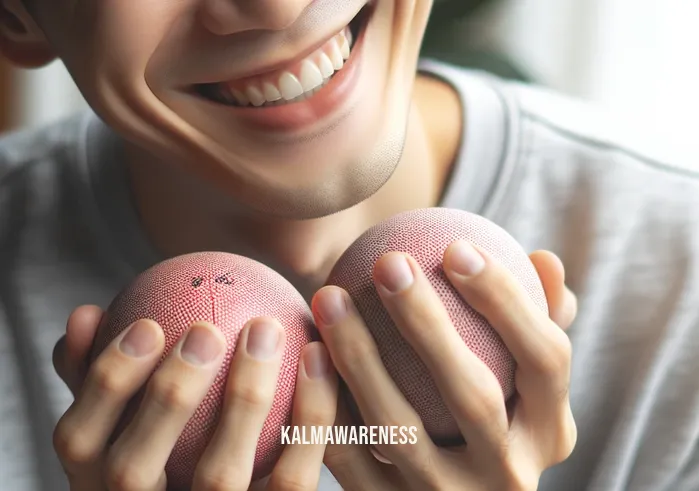Embracing Gratitude: Your First Step to a More Fulfilling Life
Understanding the Roots of Ungratefulness
In a world that often emphasizes what we lack rather than what we have, it’s easy to fall into a pattern of ungratefulness. But why do we often find ourselves focusing on the negatives? Research suggests that our brains are wired to remember negative experiences more than positive ones – a trait that helped our ancestors survive but can lead to dissatisfaction in modern life.
To begin understanding how to stop being ungrateful, it’s essential to recognize the habits and mindsets that foster this feeling. Often, a constant comparison with others, an overemphasis on material possessions, or a tendency to overlook small blessings can contribute to a lack of gratitude. By identifying these patterns, we can start to address them.
The Power of Perspective
Changing our perspective can be transformative. When we shift our focus from what we don’t have to what we do, we open ourselves up to a more grateful way of living. This doesn’t mean ignoring difficulties or pretending everything is perfect. Instead, it’s about finding a balance, recognizing the good alongside the challenges. For example, practicing mindfulness can help us appreciate the present moment and find joy in everyday experiences. Reading about mindfulness and happiness can offer more insights into this.
Practical Steps to Cultivate Gratitude
- Daily Gratitude Practice: Start or end your day by listing three things you’re grateful for. This simple practice can shift your focus and mood significantly.
- Mindful Moments: Incorporate mindfulness into your daily routine. Whether it’s through mindful movement or meditation, being present can enhance appreciation for the now.
- Expressing Gratitude to Others: Don’t just feel grateful; express it. Whether it’s a simple ‘thank you’ or a more profound gesture, showing gratitude strengthens relationships and enhances our own sense of appreciation.
- Reflective Journaling: Writing about positive experiences can reinforce feelings of gratitude. Even on challenging days, finding one positive aspect can make a difference.
The Role of Self-Compassion
Self-compassion is crucial in this journey. Being hard on ourselves for feeling ungrateful only perpetuates the cycle. It’s important to acknowledge our feelings without judgment and understand that it’s a common human experience. Self-compassion can be a gateway to greater gratitude, as it encourages us to treat ourselves with the same kindness we would offer a friend. Learning about sustainable self-care can further support this process.
Conclusion: Setting the Stage for a Grateful Life
As we conclude this first part of our exploration into how to stop being ungrateful, remember that this journey is as much about self-discovery as it is about changing habits. The steps outlined here are just the beginning.
As you reflect on these ideas, consider this question: How might your life change if you saw everything as a gift, even the challenges? This perspective can be a powerful catalyst for growth and happiness, setting you up for a deeper dive in the next section of our journey.

Nurturing a Grateful Heart: Beyond the Basics
The Impact of Social Influences
In the journey of how to stop being ungrateful, it’s crucial to consider the impact of our social environment. The people we surround ourselves with can significantly influence our mindset. If we’re constantly in the company of those who focus on the negatives, it’s likely that we’ll start mirroring that attitude. Conversely, spending time with positive, grateful individuals can inspire us to adopt a similar outlook.
Choosing Your Circle Wisely
It’s important to assess the energy and attitudes of the people around us. Ask yourself:
- Do my friends and family often express gratitude?
- What kind of conversations dominate our interactions?
- Are we supporting each other’s growth towards positivity?
Gratitude in Action: Real-Life Applications
Overcoming the Entitlement Mentality
A key hurdle in embracing gratitude is the feeling of entitlement – believing that we deserve more than what we currently have. This mindset can be subtly pervasive and detrimental. To combat this, practice appreciating the value of what you have, no matter how small it may seem.
Volunteering and Community Engagement
Engaging in community service or volunteering can be a powerful way to cultivate gratitude. Helping those in need often puts our own situations into perspective, fostering a sense of thankfulness for what we have. It’s also a rewarding experience that can enhance our own sense of purpose and fulfillment.
Embedding Gratitude in Everyday Life
Table: Simple Daily Practices
| Time of Day | Gratitude Practice | Expected Outcome |
|---|---|---|
| Morning | Reflect on 3 things you’re thankful for | Sets a positive tone for the day |
| Midday | Send a gratitude message to someone | Strengthens relationships and spreads positivity |
| Night | Journal about a positive experience | Encourages a reflective, appreciative mindset |
The Science Behind Gratitude
The Brain on Gratitude
Neuroscientific research shows that practicing gratitude can actually rewire our brains. It increases the production of dopamine and serotonin, neurotransmitters that play a critical role in our feelings of happiness. This biological change underscores the transformative power of gratitude.
“The practice of gratitude can have dramatic and lasting effects in a person’s life,” says Dr. Robert A. Emmons, a leading gratitude researcher. “It can lower blood pressure, improve immune function, and facilitate more efficient sleep.”
Embracing Imperfection
Part of the journey to stop being ungrateful involves accepting that life is a mix of good and bad. Embracing the imperfection of life, including our own flaws, allows us to be more forgiving and appreciative. This doesn’t mean settling for less, but rather recognizing the beauty in imperfection.
Conclusion: A Continual Journey
As we conclude this second part of our exploration into how to stop being ungrateful, it’s important to remember that gratitude is a continuous journey, not a destination. The practices and insights shared here are tools to guide you along the way.
Reflect on this thought: In what ways might your life improve if you viewed every situation, good or bad, as an opportunity for growth and gratitude? This mindset shift can be the key to unlocking a more fulfilling and contented life. As we prepare to delve into the final section, think about how you can apply these insights to overcome personal challenges and embrace a life filled with gratitude.

Cultivating a Lifetime of Gratitude
The Ripple Effect of Gratitude
As we’ve explored how to stop being ungrateful, it’s clear that gratitude isn’t just a personal journey; it has a ripple effect on our surroundings. When we express gratitude, not only do we benefit internally, but we also positively influence those around us. This creates a cycle of positivity, enhancing our relationships and communities.
Transforming Relationships with Gratitude
Gratitude can transform our interactions and relationships. When we express genuine appreciation, it strengthens bonds and fosters mutual respect. This can be particularly impactful in close relationships, where expressing gratitude can deepen connections and understanding.
Future Applications: Gratitude in Diverse Contexts
In the Workplace
Gratitude in the workplace can lead to a more positive work environment, higher job satisfaction, and even increased productivity. Encouraging a culture of appreciation among colleagues and supervisors can have far-reaching benefits.
In Personal Development
Gratitude can be a powerful tool for personal growth. By maintaining a grateful mindset, we are more likely to approach challenges with a positive attitude, seeing them as opportunities for learning and growth.
Actionable Steps to Maintain Gratitude
Regular Reflection
- Take time each week to reflect on what you’re grateful for.
- Consider keeping a gratitude journal to track your journey and observe how your perspective evolves over time.
Mindful Practices
- Engage in practices that promote mindfulness and presence, such as meditation or mindful movement. These can help ground you in the present moment, enhancing your capacity for gratitude.
Continued Learning
- Dive deeper into the subject with resources like books or courses on gratitude and mindfulness. This can provide new perspectives and techniques to integrate gratitude into your life.
Summarizing Our Gratitude Journey
- Recognize and challenge ungrateful thoughts.
- Cultivate a positive social circle that fosters gratitude.
- Implement daily gratitude practices like journaling or sending appreciation messages.
- Embrace imperfection and view challenges as opportunities for growth.
- Apply gratitude in various life contexts, including work and personal development.
Conclusion: A Journey Worth Embracing
In conclusion, learning how to stop being ungrateful is a transformative process that enriches every aspect of our lives. By making gratitude a daily practice, we open ourselves up to a world of positivity, improved relationships, and personal growth. As you continue on this journey, remember to periodically reflect on your progress and seek new ways to deepen your understanding and practice of gratitude.
What steps will you take today to cultivate a more grateful life?



